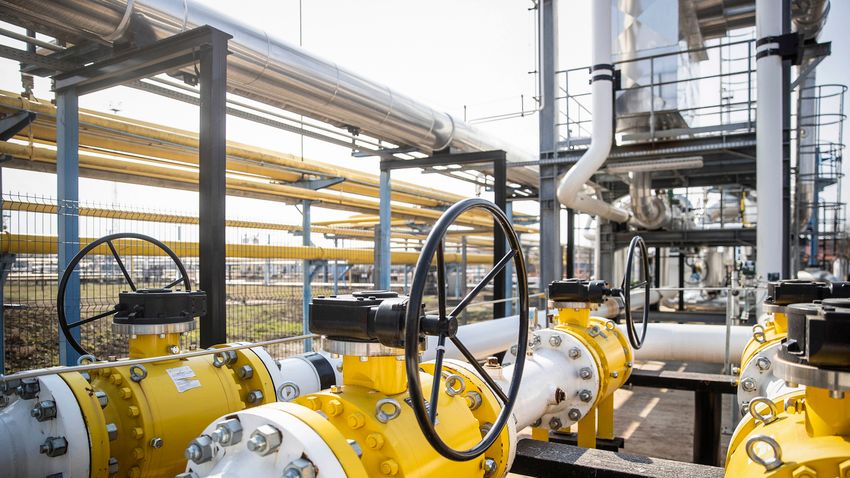The individual EU member states would be able to meet the new Brussels goal, which would require the natural gas storage facilities to be almost completely filled by November, under far different conditions. Similar to Hungary, countries with exceptionally high capacity can rightly expect compensation, but for now there is no detailed regulation in this regard. Moreover, Gazprom will continue to be able to influence the European gas market.
The European Commission is expected to publish today its proposal on the mandatory gas reserves of the EU member states in order to eliminate the EU's dependence on fossil energy carriers from Russia. The draft seen by the DPA news agency - and quoted by MTI - is consistent with the information previously published in the Hungarian Nation, which was discussed by Pál Ságvári, deputy president of the Hungarian Energy and Public Utilities Regulatory Authority. According to this, the member states should fill up their underground gas storage tanks to at least 90 percent by November 1 of each year, the reason being that interruptions in the pipeline supply can occur at any time.
Although the gas transport from Russia has been undisturbed so far, the stability of the transit is still a concern due to the Russian-Ukrainian war and the sanctions still in place by the European Commission.
The Hungarian legislation states that the amount of gas equivalent to sixty percent of the population's highest winter consumption measured in the last ten years must be stored in the storage until the start of the heating season. The heating season of 2021 and the year before also started with approximately four billion cubic meters of stored gas, of which nine hundred million cubic meters are also considered a strategic stock, which can only be accessed if absolutely necessary. In addition, they expect that imports and domestic production will continue even in winter, so that the annual total consumption of about nine billion cubic meters can be covered, including the needs of industry. Germany is now planning to introduce a measure similar to this and the committee's proposal, which will come into force in May.
Pál Ságvári previously told the Magyar Nemzet that the EU concept basically indicates that common thinking has finally started in order to prevent Europe from once again being in such a vulnerable situation that it starts the winter season with relatively low gas reserves.
However, if the regulations on uploading come into force in such a simple form, it could lead to serious inequalities between individual Member States.
First of all, as the deputy president also pointed out: while Hungary has a particularly large, unique storage capacity, other countries have much smaller or no storage capacity.
Therefore, in our case, for example, other countries should participate in the storage costs, but it could also be a solution if they determine the amount to be stored in another way, for example, based on the population's consumption. We can add that we do have a long-term pipeline gas contract, but it would not be possible to fulfill the ninety percent filling, for that the country would be forced to purchase the extra amount at the current free market prices. And if there is no need for so many energy carriers, the expensive gas will be stored here. We will either use this domestically next season or resell it, which will only be worth it if gas prices rise even more, but don't paint the devil on the wall.
Moreover, there is a big difference between individual countries not only in terms of storage capacity, but also in terms of how and at what prices they access alternative gas sources.
In other words, an equalization mechanism would be needed to ensure that countries with large storage get compensation for wage storage, as well as those that can only purchase the energy carrier at a higher price than others.
The full article of Magyar Nemzet can be read here.
Picture: Árpád Kurucz













